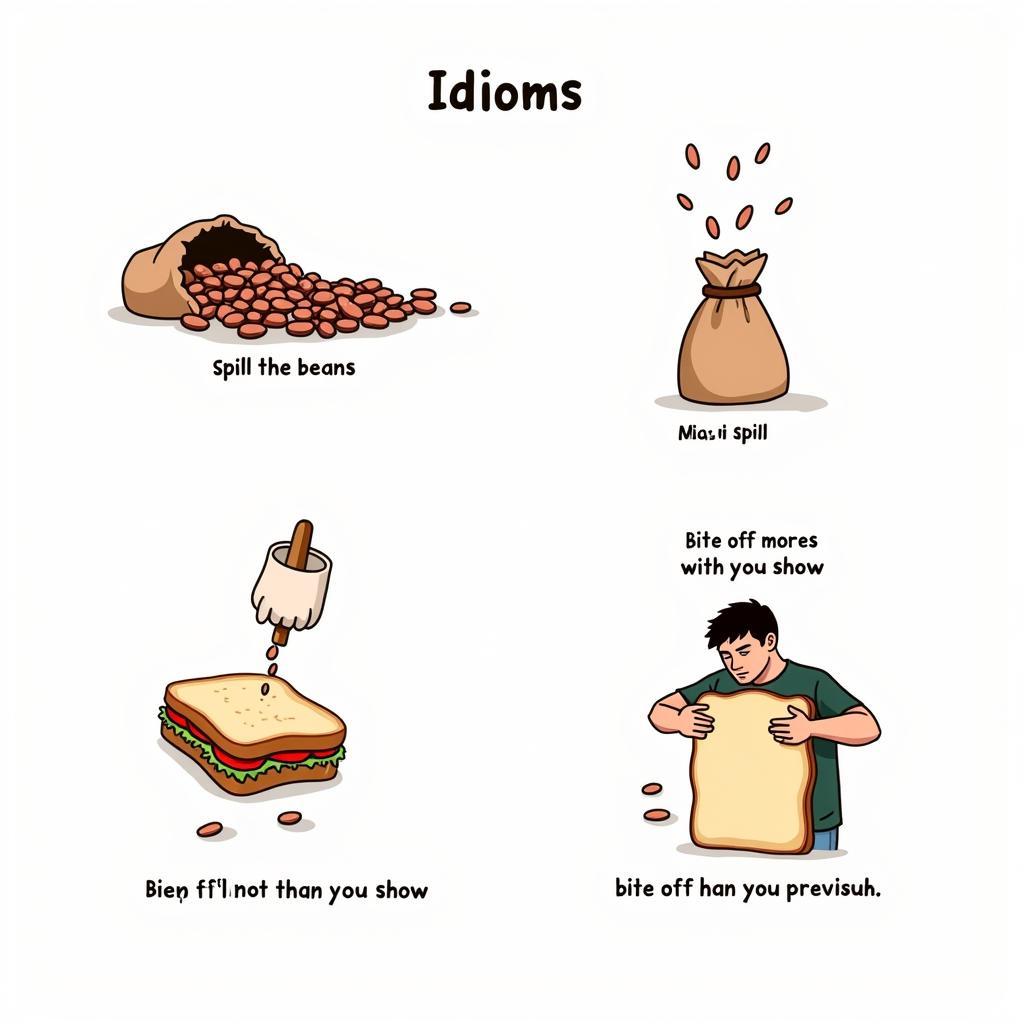English, with its intricate grammar rules and vast vocabulary, often presents a linguistic labyrinth for language learners. Among the many hurdles, certain phrases stand out as particularly challenging, leaving even seasoned learners scratching their heads.
While mastering basic vocabulary and grammar is a crucial stepping stone, it’s these intricate phrases that truly unlock fluency and allow you to navigate the nuances of the English language. Let’s delve into the world of these linguistic puzzles and shed some light on what makes them so tricky.
The Quirks of Idioms: Decoding the Unpredictable
Idioms, those peculiar expressions where the literal meaning bears little resemblance to the intended meaning, are notorious for tripping up English language learners. Imagine trying to decipher the meaning of “kick the bucket” based on its individual words! Without cultural context and exposure, understanding these phrases feels like solving a cryptic crossword puzzle.
For instance, the phrase “spill the beans” has nothing to do with legumes tumbling to the floor. Instead, it means to reveal a secret, often unintentionally. Similarly, “bite off more than you can chew” doesn’t involve oversized food portions, but rather taking on more responsibility than one can handle.
 Decoding English Idioms
Decoding English Idioms
Mastering idioms requires a different approach than memorizing vocabulary lists. It’s about immersing yourself in the language, encountering these phrases in context (like movies, TV shows, and books), and gradually deciphering their meanings through repeated exposure.
Phrasal Verbs: Navigating the Verb + Preposition Maze
Phrasal verbs, those dynamic duos of a verb and a preposition (or sometimes an adverb), often leave learners bewildered. The challenge lies in the fact that the meaning of a phrasal verb rarely aligns with the meanings of its individual components. Take “look after,” for example. It doesn’t involve gazing in a specific direction but rather means to take care of someone or something.
Adding another layer of complexity, many phrasal verbs have multiple meanings depending on the context. “Take off” can refer to a plane leaving the ground, removing clothing, or even the sudden success of a project.
 Phrasal Verbs Explained
Phrasal Verbs Explained
So how does one conquer the world of phrasal verbs? The key is to treat them as individual units of vocabulary, learning their meanings and usage in context. Flashcards, language exchange partners, and regular practice are your allies in this linguistic battle.
Beyond Literal: Grasping Figurative Language
Figurative language, with its similes, metaphors, and other literary devices, adds depth and color to English but can also create confusion for those still grappling with literal meanings.
Imagine encountering the phrase “He’s drowning in paperwork.” While no one is literally submerged in a sea of documents, the image vividly conveys the overwhelming amount of work the person faces.
Understanding figurative language is less about memorizing definitions and more about developing a feel for the nuances of the language. The more you expose yourself to different forms of English literature, poetry, and even everyday conversations, the better equipped you’ll be to decode these figures of speech.
Conquering the Challenge: Tips for Mastering Difficult English Phrases
While these phrases might seem daunting at first, remember that even native speakers stumble upon them occasionally. Here are some tips to help you conquer these linguistic hurdles:
- Embrace Context: Pay attention to the surrounding words, sentences, and situations where these phrases appear. Context is your best clue to deciphering their meanings.
- Don’t Be Afraid to Ask: If you encounter a phrase that leaves you baffled, don’t hesitate to ask a native speaker or consult a reliable dictionary.
- Practice Makes Perfect: Use these phrases in your own writing and speaking, even if it feels a bit awkward at first.
- Have Fun with Language: Learning a new language should be an enjoyable experience. Embrace the humor in these quirky phrases and celebrate your progress as you unravel their mysteries.
Conclusion: Embracing the Journey of Language Learning
Mastering difficult English phrases is a testament to your dedication and perseverance in your language learning journey. It’s about moving beyond basic grammar and vocabulary and venturing into the heart of what makes English such a rich and expressive language. Embrace the challenges, celebrate the victories, and remember that every step forward brings you closer to fluency.
FAQs:
1. What is the difference between an idiom and a phrasal verb?
- An idiom is a group of words with a figurative meaning that differs from the literal meanings of the individual words. A phrasal verb is a combination of a verb and a preposition (or adverb) that functions as a single verb and often has a different meaning than the individual words.
2. How can I improve my understanding of figurative language?
- Read widely in different genres, pay attention to how language is used creatively, and practice interpreting the intended meanings behind metaphors, similes, and other literary devices.
3. What are some resources for learning difficult English phrases?
- Dictionaries of idioms, phrasal verb dictionaries, online language learning platforms, and language exchange partners can all be helpful resources.
Want to Explore More?
Do you have other burning questions about the English language? We’re here to help! Contact us at:
Số Điện Thoại: 0372991234
Email: [email protected]
Địa chỉ: 212 Hàm Nghi, Hà Nội.
